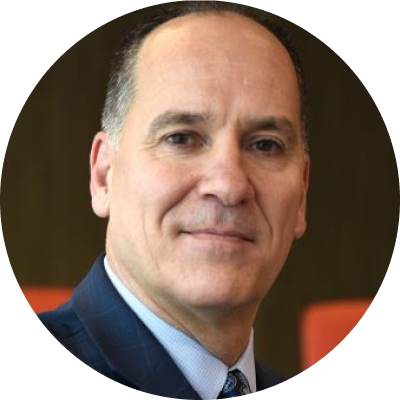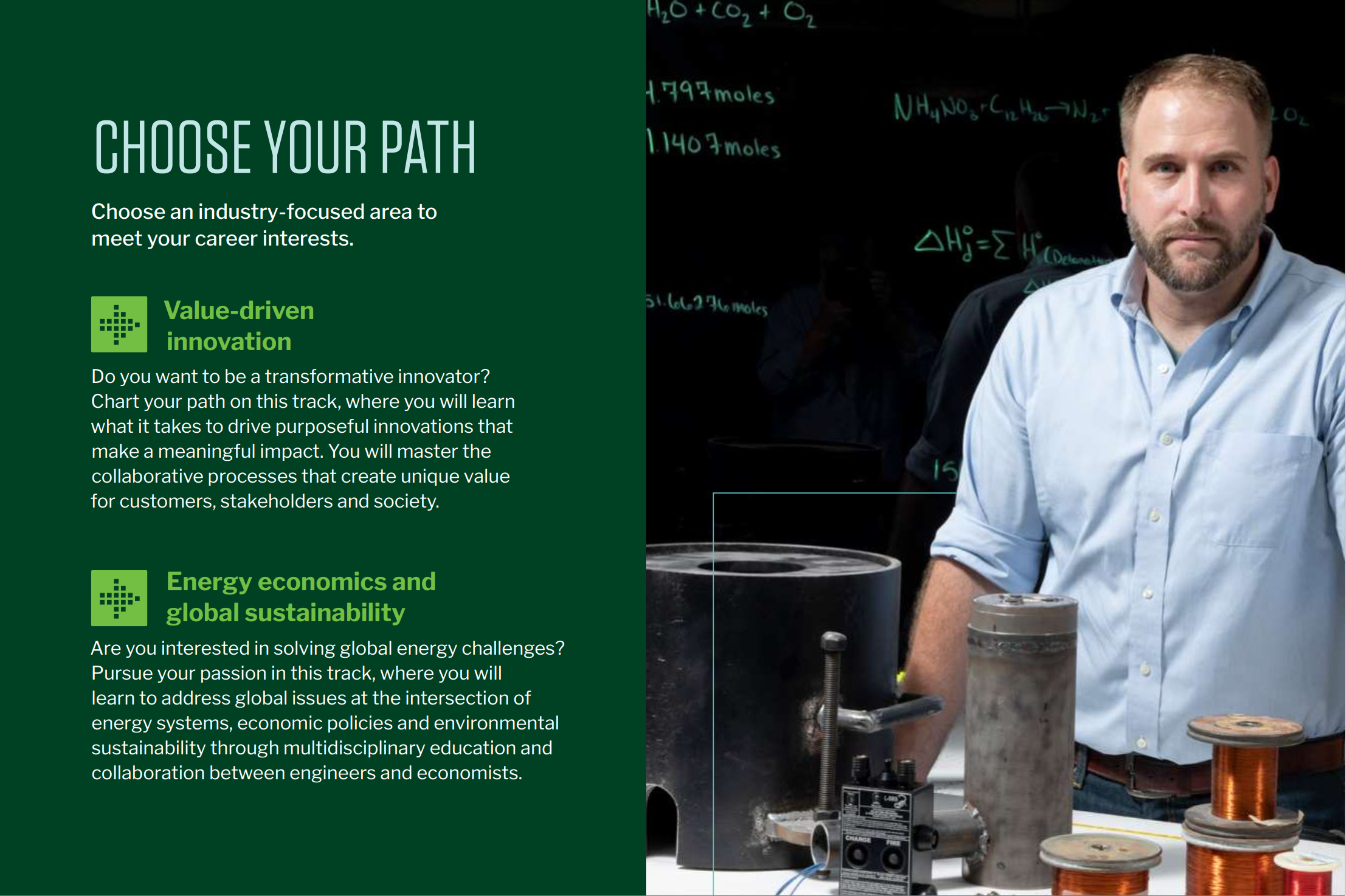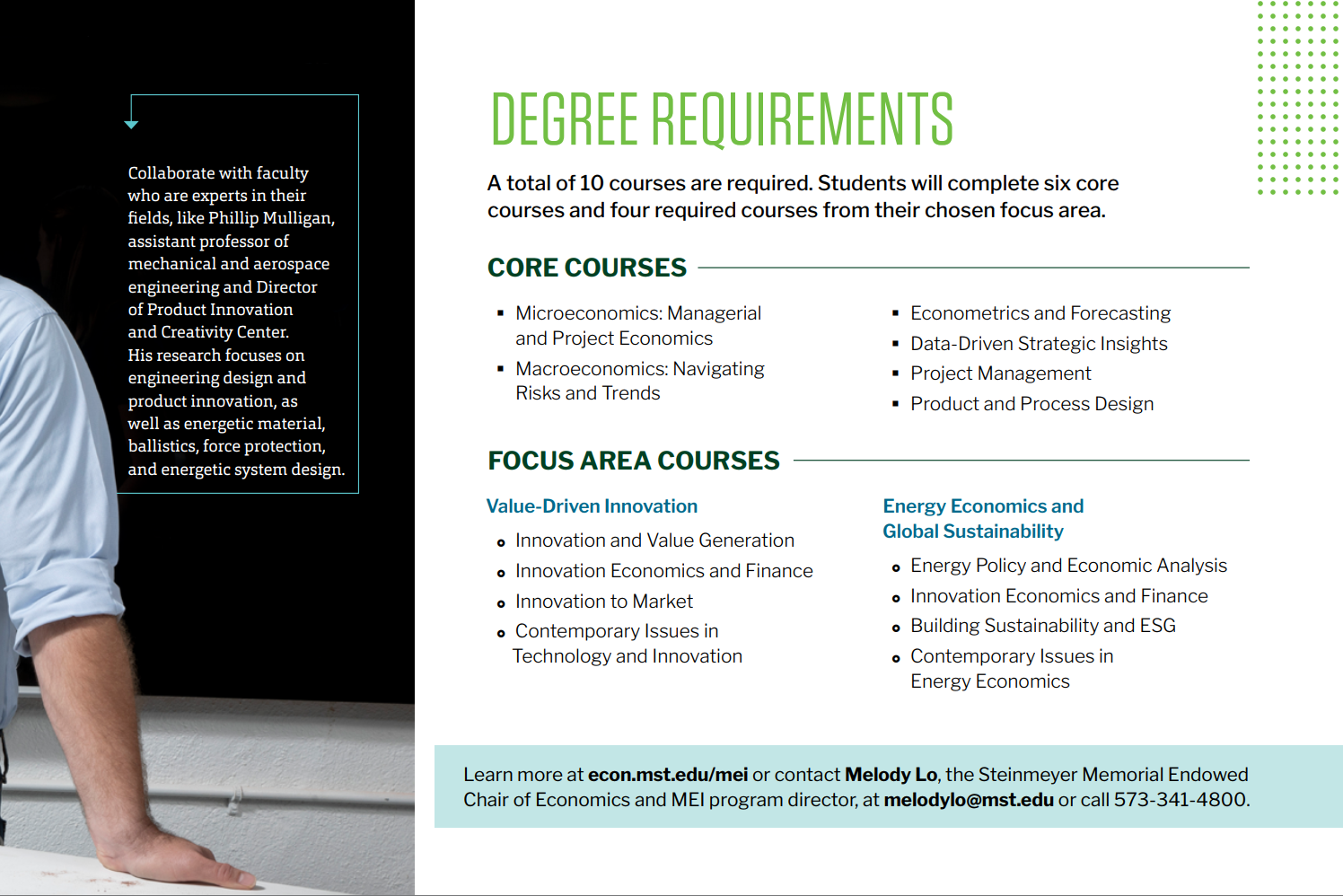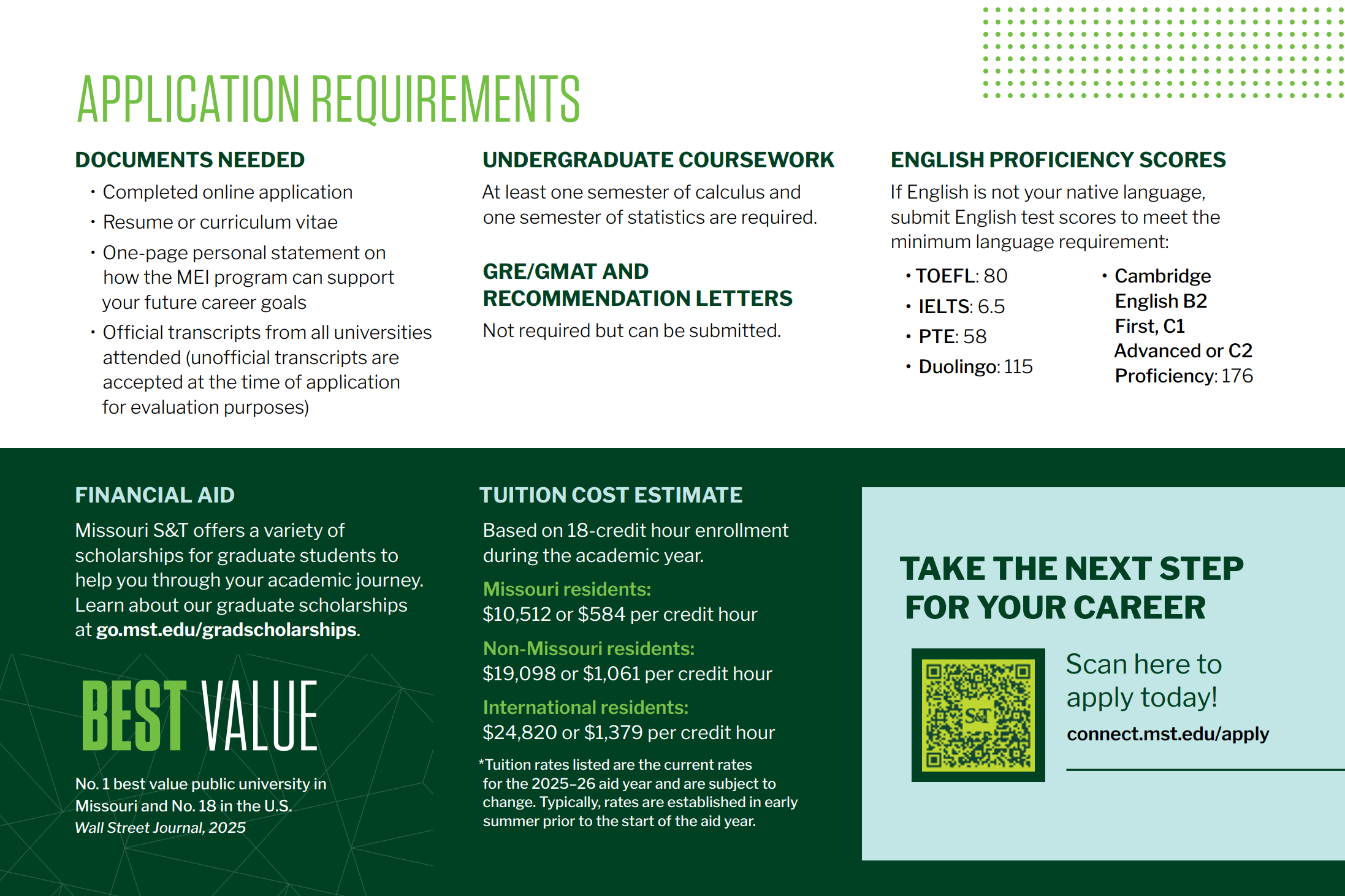Master's Degree in Economics & Innovation
Earn a Master's Degree in Economics & Innovation
A master’s degree in economics and innovation (MEI) equips you with the collaborative and technical skills to become a transformative innovator and difference-maker in solving real-world challenges. In the MEI program, you will learn to tackle the pressing challenges of industry and society by creating value-driven innovations and going beyond technical engineering aspects to successfully bring them to market.
You can select two focus areas: either value-driven innovation or energy economics and global sustainability to meet your specific career interests. When you graduate, you’ll possess a comprehensive perspective and the capability ready for high-impact careers, applying purposeful innovations to create sustainable economic and societal value for all.
Program Videos
Program Brochure
Degree Information
Your Career in Economics & Innovation

I've led teams at McDonnell Douglas, HP, Rational Software, and startups, generating billions in revenue and thousands of jobs. The global shortage of skilled professionals to assess technology’s economic and technical viability highlights the need to educate students with the MEI curriculum.
— John Lovitt, retired Silicon Valley senior executive, Missouri S&T Trustee, and S&T alumnus

The MEI program offers an opportunity to build a workforce with an engineering background also capable of navigating the complex decision-making process surrounding technology investment, particularly in the face of policy uncertainty.
— John C. Wagner, Director of the Department of Energy’s Idaho National Laboratory, Missouri S&T Trustee, and S&T alumnus

 Estimated Starting Salary
Estimated Starting Salary
$100,000+
.png) Career Pathways
Career Pathways
-
- Innovation Strategist
- Research and Development Manager
- Technology Economist
- Economic Development Manager
- Business Development Manager
- Policy Analyst








